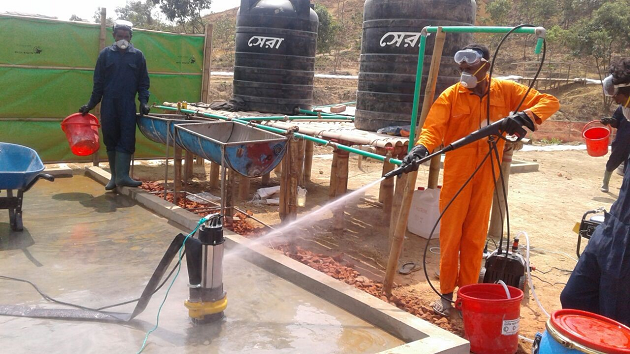A particularly challenging aspect of this response has been the management of faecal sludge. With the heavy rains, overcrowding, and the temporary nature of the camps, ensuring the adequate number and condition of latrines has proved difficult.

Cheryl points out how important it has been to collaborate with partners on this issue.
"Emergency response doesn’t normally include the treatment of fecal sludge, but given the speed at which latrines are filling and the risk of flooding to latrines, this has been a key component. It has meant I had the opportunity to work alongside some of the experts in the field of Faecal Sludge Management (FSM). The team included staff from Mott MacDonald and Eawag - Swiss Federal Institute of Aquatic Science and Technology.”
Burton also faced difficulties when it came to managing the fecal sludge situation and describes the challenges he faced in addressing the issue and how his team worked to overcome them:
“The fecal sludge management was the most challenging. The camps are congested and there is limited space for installation of adequate pit latrines. As a result, the few existing latrines were quickly filled. Decommissioning or demolishing filled latrines was easily done but space for replacement of new latrines was unavailable. Construction of permanent pit latrines with good design and big capacity was strictly not allowed by the government because its preference was repatriation of refugees, so only temporary facilities were allowed to be constructed. Increasing the depth of latrines was inevitable but constrained by the high water-table. Instead of decommissioning latrines, it was decided and agreed to desludge and establish treatment plants in identified points though access was another obstacle.”